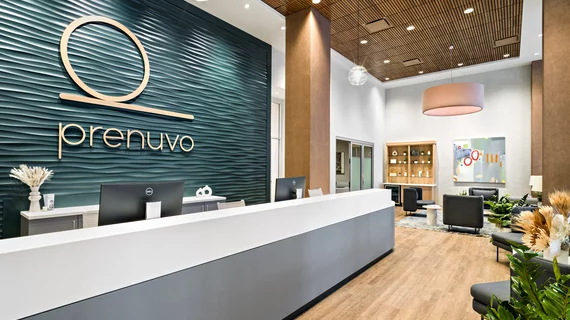Whole-body MRI startup Prenuvo’s recent ‘milestone’ would mark $250M in revenue
Imaging startup Prenuvo recently celebrated the delivery of its 100,000th whole-body MRI scan—a figure that represents nearly $250 million in revenue, based on its $2,499 charge for the exam. A spokesperson on Tuesday declined to discuss whether that figure is accurate.
Prenuvo estimates that it has alerted up to 5% of patients about “potentially life-threatening conditions” such as aneurysms and tumors. Another 49% have found something “worth keeping an eye on,” the California-based company said in a blog post published Tuesday.
Founded in 2018, Prenuvo offers MRIs to healthy patients, hoping to detect cancers and other diseases before they become symptomatic. The company last year raised $70 million from investors including Cindy Crawford and has earned celebrity endorsements and buzz on social media.
“We have been building Prenuvo to challenge the belief that healthcare should be scary. Instead, it should inspire hope and empowerment," CEO Andrew Lacy said in the blog post. "Reaching 100,000 scans is more than a milestone—it’s a testament to the growing movement of proactive healthcare.”
Amid growing interest in whole-body scans, others also have started offering them, including provider groups Rayus Radiology and SimonMed Imaging. The American College of Radiology does not support the practice, noting that there is no documented evidence that total-body screening is cost-efficient or effective in prolonging life. Absent such data, Prenuvo in July announced the launch of a 10-year clinical trial to assess its care model.
Prenuvo now bills itself as the “largest private radiology group in the world focused exclusively on whole body MRI,” with a team of over 80 board-certified radiologists. It also boasts the “world’s largest dataset of whole-body normative imaging,” and the company has now presented over 35 papers and abstracts.
Fast Company also published a story about Prenuvo Tuesday, noting that it has delivered about 10 times the amount of scans as the closest competitor. It now has 17 clinics with plans to open another 12. Skeptics have criticized the high cost of Prenuvo’s services, but Lacy contends the company will save the healthcare system money in the long run.
“For us to scan everyone in the U.S. every two years will cost about $50 billion, which is a lot of money,” he told Fast Company. “But we spend $150 billion on late-stage cancer drugs and treatment alone, and we spend over $1 trillion on chronic disease. So already the ROI on this type of investment we believe is pretty interesting and exciting.”
Prenuvo also has launched a reduced pricing plan for first responders, military personnel and veterans—offering scans for between $799 to $1,999. The company hopes that targeting individuals in certain industries could lead to employers and insurers covering these MRIs to help curb downstream healthcare spending.
“The cost of doing that for the healthcare system is small, a single-digit percentage of what we’re currently spending on the reactive care that we have to provide because we’re catching things late,” Lacy told the news site. “Everything is downstream of preventative care. So, if you could really, comprehensively do preventative care at scale as a society, the healthcare system would not look the same again.”
A company spokesperson on Tuesday declined to comment on the financial side of the 100,000-scan milestone and exactly how much Prenuvo collected from the exams. The scans cover 26 different regions of the body in under one hour, allowing radiologists to screen for more than 500 conditions. Lacy and colleagues said last year that they’d seen 240% year-over-year revenue growth. As more signs of the model’s popularity, whole-body MRI startup Ezra in February said it had raised $21 million in financing with plans to open 50 new locations. The same month, SimonMed Imaging announced plans to double the number of centers offering these scans amid “exponential” demand.
Editor's Note: An earlier version of this story misstated the number of patients Prenuvo has alerted about life-threatening conditions, which is between 2.5% to 5%. Radiology Business regrets this error.

